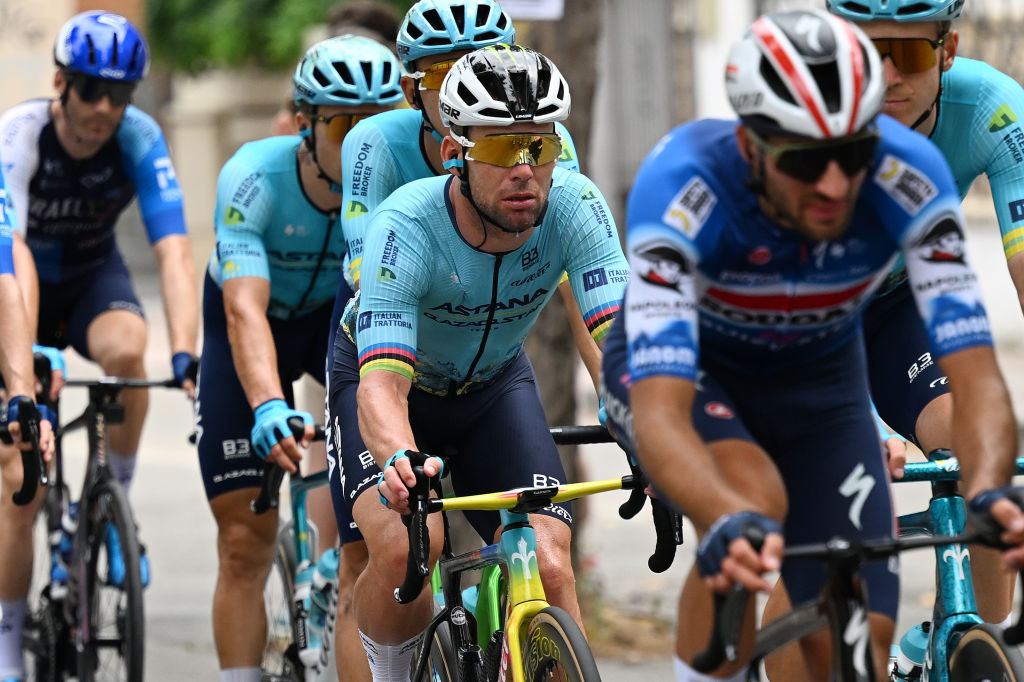
Mark Cavendish’s first shot at claiming a 35th stage victory at the Tour de France ended when a high-speed crash in the peloton with two kilometres to go forced him to hit the brakes on stage 3 in Turin.
Israel-Premier Tech and Cofidis riders went down, and Cavendish and his Astana-Qazaqstan lead-out train were stuck behind them. Davide Ballerini was ahead of his teammates and sprinted to a frustrated eighth place. but that was of little consolation.
“My chances were ruined by that crash,” Cavendish said after riding to his team bus, while admitting their chances were limited anyway due to poor positioning.
“I wasn't the only one, but I was lucky to stay up. I could see it happening and I could hear it. I’m too little to see what is going on in crashes but I can hear it. I can see people ahead of me, as you go full on with the brakes.
“Now (with disc brakes), it’s not about thinking you're going to hit someone, you’re waiting for somebody to hit you from behind. We kind of got through it, but we were way off with 2.5km to go, so out of it.”
Wout Van Aert and Christophe Laporte (Visma-Lease a Bike), Jake Stewart and Guillaume Boivin (Israel-Premier Tech) and Magnus Cort and Søren Wærenskjold
(Uno-X Mobility), were among those who were affected by the crash. but none were were seriously injury. Casper Pedersen crashed at speed with 15 kilometres to go and suffered a collarbone fracture that forced him to abandon the Tour despite finishing the stage.
With the three-kilometre rule extended to five kilometres on Monday as part of a new safety initiative, the riders involved or slowed by the crash at 2.2 km to go were given the same time as stage winner Biniam Girmay.
Cavendish was concerned about his fellow riders.
“I think everyone is okay, which is important. I don’t think anybody's seriously hurt, are they?” he asked. “I saw Jasper (Philipsen) and he was okay.”
He was also genuinely happy for Girmay, who grew up hoping to emulate Cavendish and has now won his first Tour de France stage.
“It's brilliant, isn't it? It’s such a massive thing,” Cavendish said. Cycling is massive in Eritrea. That's super good for him and for African cycling. He's a legend, isn't he?”
Cavendish stopped to change both his front and rear wheel with 80 km to go. It seemed to be sign he wanted more aerodynamic wheels and perhaps faster tyres for the sprint. It was also a sign of his confidence for the sprint, even if Astana insisted afterwards that he had suffered two flat tyres.
“I've always been fidgety with my bikes, haven't I?” Cavendish said. “I like to change different stuff and that.”







